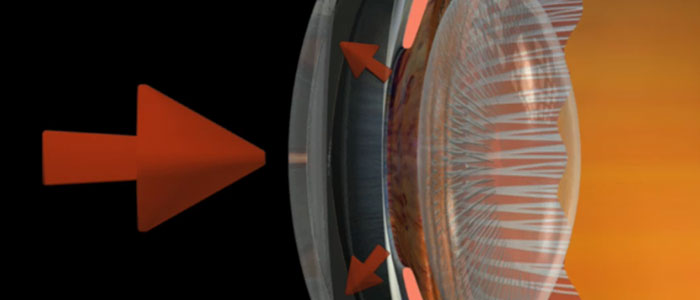
Corneal Molding, also know as Ortho K or OrthoKeratology is a non-surgical procedure used to temporarily reshape the cornea. Some mild cases of near sightedness and astigmatism can be treated by simply changing the shape of the cornea, to correct the way it refracts light.
A specially designed contact lens, which is rigid and gas permeable, is made specifically for your eye. This lens can be worn during the day or overnight. The lens itself is fitted so that it places gentle pressure on the center of the cornea, causing it to change shape. The outer part of the lens surrounds your central visual zone and is further away from the surface of the eye. The combination of the pressure at the center and space around the outer part causes a reshaping of your cornea. With your cornea reshaped the light can now focus properly on the retina at the back of the eye.
The process is painless and not permanent, so retainer contacts must be worn periodically to maintain the shape of the cornea. This also makes the process completely reversible, simply stop wearing the retainers and your cornea will return to its natural shape.
Corneal Molding is a non-invasive alternative to corrective surgery. Ask your eyecare provider for information to see if you qualify for Corneal Molding.

